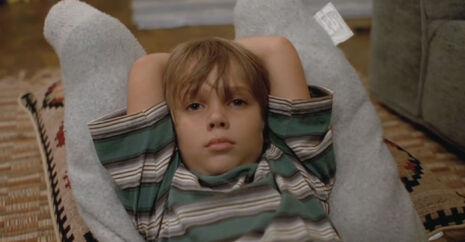Film: Boyhood
Charlotte Taylor ignores those who say it’s too long and dubs Boyhood a film of the year

Boyhood has undoubtedly been anticipated by many as one of the best film releases of the year. Since its debut at the Sundance Film festival, and its plaudits at the Berlin Film festival, Boyhood has met with such universal acclaim that one of the producers even offered to do the chores of any dissatisfied cinema goer for the running time of the film - and it is not a short film. Usually, films that are surrounded with this degree of hype almost always fail to live up to their promise, but Boyhood does not; it is one of the most extraordinary films of the year.
Richard Linklater begins his film by zooming in on a six-year-old boy lying with his back to the ground staring up into the sky. Over the course of the next 12 years the camera never leaves his side, exquisitely capturing his whole boyhood, at times in excruciating detail. Mason (Ellar Coltrane) moves house, his voice breaks, and his hearts breaks as we follow his mom (Patricia Arquette) through a series of difficult relationships in her quest for fulfilment, while his sister (Lorelai Linklater) eventually heads off to college. Mason's initially immature father (Ethan Hawke, Linklater’s muse) turns up periodically in his jet black sports car before trading it in for a gas-guzzling minivan and life as an actuary.
As is typical of Linklater's humanistic film making, Boyhood demonstrates a deep sympathy with its characters without attempting to create windows into the soul of the protagonist. We are left to comprehend Mason by watching with him rather than looking at him. Famously, Linklater shot the film in sequence over a 12 year period. Other film makers have attempted to capture ageing on camera, most notably Truffaut’s Antoine Doinel and even Linklater himself in his much beloved Before trilogy in which the two lovers are followed up after 9 year intervals. In Boyhood, however, Linklater uses this technique most effectively: whereas we are left with the possibility of returning to the lovers in Before, Mason’s boyhood can never be recaptured.
The staggering logistics of the project are forgotten in the viewing experience. The apparent ease with which Linklater puts together the film makes the ageing of the characters seamless and practically unnoticeable so that the rate at which all of Mason’s milestones pass us by is all the more tragic. The film is shot through with gentle humour and characters who are wholly believable and practically palpable, which is in no short measure due to beautifully naturalistic actors and script. Ultimately, Linklater has succeeded in making a film that is not just about Boyhood, but how we measure our lives and the remorselessness of time itself.
 News / Police to stop searching for stolen Fitzwilliam jade17 April 2024
News / Police to stop searching for stolen Fitzwilliam jade17 April 2024 News / Copycat don caught again19 April 2024
News / Copycat don caught again19 April 2024 Interviews / ‘It fills you with a sense of awe’: the year abroad experience17 April 2024
Interviews / ‘It fills you with a sense of awe’: the year abroad experience17 April 2024 News / Night Climbers call for Cambridge to cut ties with Israel in new stunt15 April 2024
News / Night Climbers call for Cambridge to cut ties with Israel in new stunt15 April 2024 News / Acting vice-chancellor paid £234,000 for nine month stint19 April 2024
News / Acting vice-chancellor paid £234,000 for nine month stint19 April 2024




